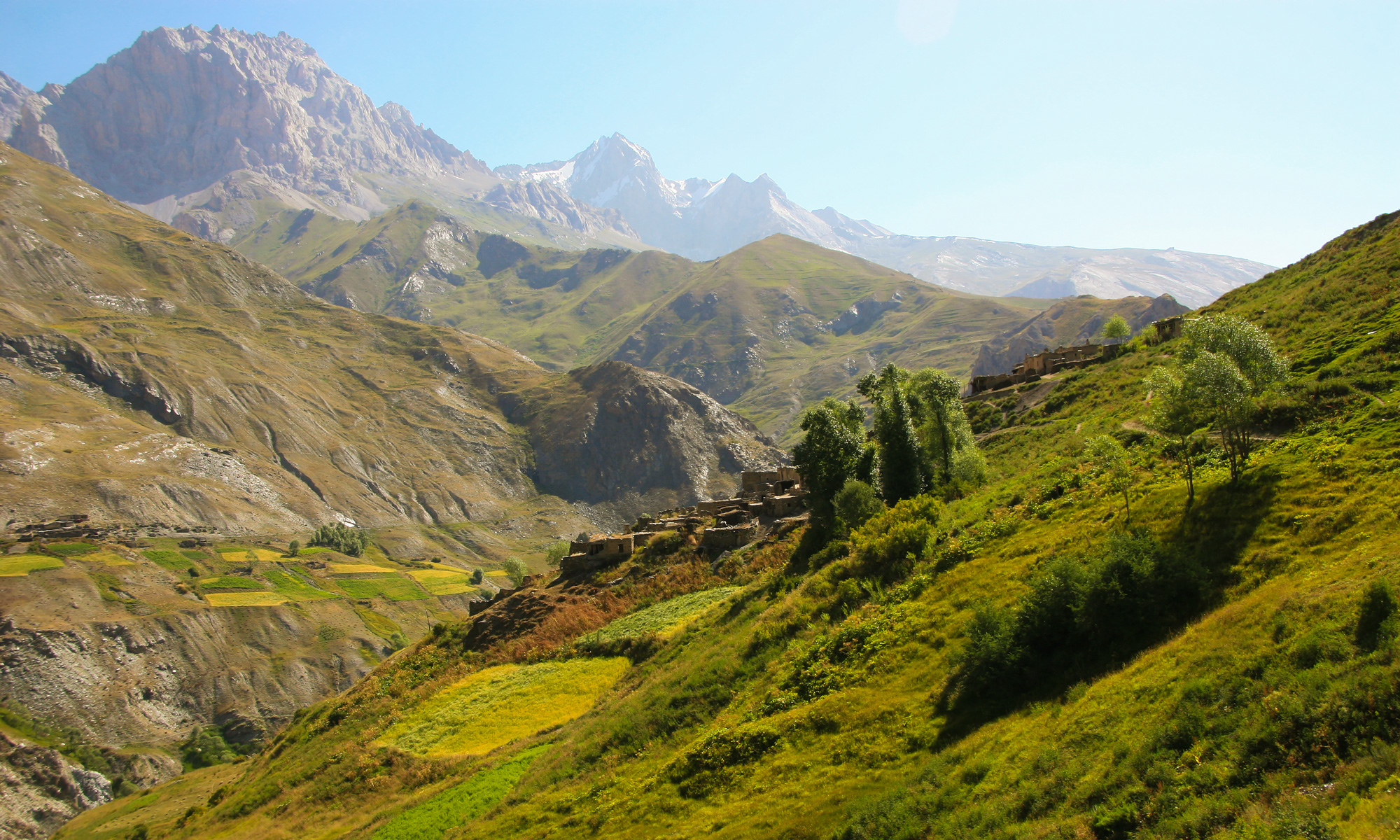In Yaghnobi life, names are not just identifiers—they are maps of memory.
Each name carries echoes of ancestors, landscapes once walked, and the quiet hopes whispered across generations. To name a child is not merely a personal act. It is a cultural one. A restoration of lineage, spoken into the present.
In Yaghnobi oral tradition and linguistic records, names often appear as possessive constructions, blending person and place:
-
Насри дашт (Nasri dasht) — “Nasr’s plain”
-
Аҳмадзини кӯҳ (Ahmadzinī kūh) — “Ahmadzin’s mountain”
-
Рӯди Маҳмад (rūdi Mahmad) — “Mahmad’s river”
These are more than toponyms. They are acts of remembrance. Naming a location after a loved one ensures that neither the person nor the place fades from memory.
And the tradition continues in families. When a child is born soon after a grandparent’s passing, it’s common for the child to carry that grandparent’s name. In some homes, the gesture is marked by poetic expressions like:
“Ту оби Наср ҳастӣ.”
“You are Nasr’s water.”
These words carry weight. They link the living child to a source—a person, a place, a memory.
Naming in Yaghnob is often relational. One recorded phrase reads:
“Фарзанди Маҳмад аз болои дара омада буд.”
“Mahmad’s child had come down from the upper gorge.”
Here, identity is braided with geography. In some dialects, family names blend seamlessly with terrain—describing not just who someone is, but where they belong. Fields, mountain paths, and irrigation routes are not just landmarks; they are parts of personal history.
Naming becomes a form of oral cartography—telling stories through names about whose feet once touched which stone, or whose hands once cupped which spring.
The phrase “ӯ номи падарбузургро дорад” (“He carries the grandfather’s name”) appears across Yaghnobi family stories. But often, the resemblance is more than nominal.
In one account, a young boy—named for his grandmother—refused to cross a footbridge. “She never did either,” the family said. Whether a coincidence or a kind of inherited caution, the name seemed to carry her spirit.
These moments aren’t dismissed as superstition. They’re seen as social memory—ways in which names carry traits, habits, even silences.
Among returnee families—those who found their way back to ancestral villages after decades of exile—naming often becomes a form of resistance. A way to reclaim what was almost erased.
Parents point to stones or fields and say:
“This is your great-uncle’s rock. He carved a mark here before the flood.”
“You are named for the path where she fetched water every morning.”
These are not decorative stories. They’re affirmations of belonging. A valley made familiar through speech, a lineage restored through location.
As Yaghnobi families rebuild ties to their valley—some physically, others through memory—the old naming customs persist.
A boy is named Ziyod, after a river crossing.
A girl is called Shoira, for her grandmother’s prayer-song.
And a child hears, for the first time:
“You carry her name. That means you must remember her laugh.”
To name a child is to make a promise.
It is a form of love—not abstract, but directional.
A way of saying: this is where you come from, and this is who walks with you now
